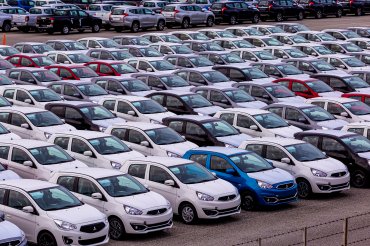Thailands lubricant demand is expected to grow this year as the automobile manufacturing sector expands and foreign companies relocate to the country to avoid tariffs imposed as part of the trade war between the United States and China, according to a global consultancy.
In 2019, overall lubricant demand is expected to reach 675,000 metric tons, for a compound annual growth rate of 7.4 percent from 2017 to 2019, according to Ipsos figures released to Lube Report, overtaking its previous estimate of 547,000 tons for 2020.
Thailands total automotive production volume grew almost 10 percent in 2018 (from 1.98 million units in 2017 to 2.16 million units in 2018) and continued its growth in the first-half of 2019, said Chukiat Wongtaveerat, head of consulting in Thailand and Myanmar, for Ipsos Business Consulting. Demand for automotive in Thailand also increased 19 percent in 2018.
Thailands lubricant market is the second largest in Southeast Asia. In 2017, demand was 584,000 tons. Consumer automotive products accounted for 49 percent of that volume, industrial lubes for 31 percent, heavy-duty truck lubricants 15 percent and metalworking oils and fluids for 5 percent.
Amid the U.S.-China trade war, direct foreign investments into Thailand have increased, including those made by Chinese manufacturers. According to the countrys central bank, the Bank of Thailand, direct foreign investments increased 60 percent to 432 billion baht (about U.S. $14 billion) in 2018, compared to the previous year.
Wongtaveerat said that ongoing public investment projects and a foreign manufacturing base that is expanding partly due to the relocation of Chinese tire manufacturers to Thailand, will increase the demand for industrial lubricants in the country as they need lubricant in their production process.
However, the overall industrial lubricant market in Thailand is still dominated by top brands such as PTT, Shell and Bangchak, who have established strong distribution channels in the market for the past decades, he said. It will take some time for new players to establish a strong footprint in the Thailand market. Even with Chinese machines, the usage of industrial lubricants still needs to comply with specifications and quality [requirements], which existing brands in the market are ready to support.
Chinese lubricant companies may have the benefit of brand recognition and existing relationships when targeting Chinese equipment manufacturers, he added, but existing players probably have advantages of logistics, technical support and product range.
Were still expecting top players to dominate the [Thailand] market, and the overall market landscape wont change much in the short-term because new players will need to focus on the area that they can penetrate first, such as Japanese brands with Japanese automakers, he said.
Photo: Teerayuth Mitrsermsarp/Shutterstock
